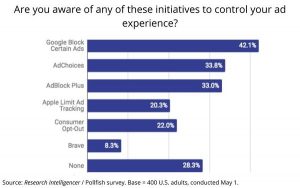— April 12, 2019
Social media now plays a vital role in the eCommerce industry, attracting potential customers to your storefront and even offering a new avenue for direct sales. BigCommerce reports that shops utilizing social media have 32 percent more conversions. To maximize your company’s potential, you should give attention to both customer retention and acquisition. But how do you go about finding and attracting new potential shoppers?
Social media has helped to answer this question, providing companies with an outlet that both builds brand identity and expands its target audience. Plus, new built-in social selling features, like sponsored Instagram campaigns and Facebook carousel ads – as well as third-party tools –allow brands to reach specifically selected users based on their interests.
What Is Social Selling and Why Is it Effective?
Social selling allows users to promote and sell products to customers directly through social media platforms. Instead of merely guiding consumers to the eCommerce storefront or prompting users to open the shop’s website in a separate browser, social media platforms support in-app purchasing, requiring less navigation and encouraging impulse buys.
Mobile traffic has quickly surpassed that of desktop and laptop searches, making up 52.2 percent of all web traffic in 2018. Although consumers seem to use their smartphones to search the web, mCommerce conversion rates fall short of those on more traditional devices.
According to Monetate’s Q2 2018 issue of Ecommerce Quarterly, mobile conversions hover around 1.6 percent while desktop and laptop average 3.91 percent. Taking advantage of social selling may be one way to boost your mobile conversions, thus bringing in additional revenue and potential return customers.
Top Social Media Selling Platforms
These days, the internet is saturated with social media networks, each serving a different purpose and audience. When selecting which platforms will be most beneficial to your business, carefully consider your target demographic, keeping in mind the average age, location, gender and income of your buyers.
Though most businesses at least have a presence on multiple platforms, your business should select a network with a user base that closely matches your target audience. For example, Instagram tends to attract younger users, though their base is growing rapidly. So, if your brand is geared toward millennials, this may be a better avenue to focus your marketing efforts.
Boasting an extensive network of more than one billion monthly users, Instagram provides companies with access to a versatile range of potential consumers. Though America has the highest number of users with 120 million active accounts, 88 percent of users are based out of other countries, the next three countries with the most users being India, Brazil, and Indonesia. If your company has a large customer base in any of these areas, Instagram may be a good choice for social selling.
Instagram’s sponsored ads feature is another extremely useful aspect for business accounts. Designed to seamlessly blend in with a user’s feed, sponsored ads often utilize information to tailor ads specifically to users who are interested in similar products and items. This hyper-targeting is beneficial because it puts your company in front of an audience already interested in similar items.
The company that purchased Instagram in 2012, Facebook has also integrated an array of features created for businesses to put their brand in front of a targeted audience. Through this platform, shop owners can display advertisements in a variety of ways including carousel ads, which allow users to flip through multiple product pictures and videos, and dynamic ads, a form of retargeting to attract customers who have previously visited your website, amongst other types.
Twitter is not as geared towards eCommerce marketing efforts as Instagram and Facebook but still provides valuable methods for reaching potential customers. Many eCommerce companies actually use Twitter as an alternative means of customer support.
Customers find this avenue of communication to have a quicker response time and is more convenient than reaching out through a website’s contact form or customer support phone number. In terms of actual selling, Twitter is a great platform to engage with consumers, identify potential leads and analyze insights to better understand your target market and their interests.
YouTube
The most widely used video platform, YouTube has gained much attention as of late when it comes to social selling. YouTube influencers carry the power to market to mass audiences through product reviews, but eCommerce businesses can also build their own YouTube channels to feature informative videos on product demonstrations and in-depth how-to tutorials. Now the second largest search website after Google, YouTube attracts people of all ages and is easily accessible on both mobile and desktop devices.
Much like Instagram, Pinterest is a visually-based social media platform, relying on enticing photos to engage potential consumers. A variety of different businesses can flourish on this platform, but companies with a demographic that skews females under the age of 40 may find particular success here.
Social Selling Tools
While many of these social media platforms have their own built-in marketing features, there are tons of third-party apps and tools that can enhance your advertising efforts and improve ad campaigns. These are some of the most well-received tools you can integrate into your social selling strategy.
StoreYa and Beetailer
StoreYa offers a range of applications that can drive traffic to your site, generate leads and increase sales through features like social media coupon advertisements and Facebook Shop, which pulls products through from your site and populates into target users’ feeds.
Beetailer is a similar tool that displays your collection of items on your business Facebook page, allowing interested users to browse your products directly from the social media site.
Hootsuite
A popular plugin for eCommerce sites using multiple social media platforms, Hootsuite is a user-friendly management system that provides valuable insights, tracks ROI, schedules posts and suggests interesting re-postable content amongst other useful features. This social selling app is one of the most essential tools to help manage your platforms and reflect on campaign results.
Buyable Pins on Pinterest
The visual appeal of Pinterest can attract many potential customers, but you may lose sales if you rely on these users to click your pin and then visit your website in a separate browser. Most Pinterest users are virtually window shopping on the site, particularly if they’re using a mobile device, so the added friction of navigating to another tab or window is often an obstacle eCommerce companies must overcome.
With the Buyable Pins option, you can create a better experience for users by offering a blue “Buy It” button right next to the traditional “Pin It” option. Internet shoppers are all about convenience, especially when it comes to social shopping, so you can make the process easier for them by delivering the product directly to them.
BigCommerce and Shopify Built-in Features
If you’re using BigCommerce as the designated platform for your eCommerce store, there are several built-in social selling features you can take advantage of including tagged products in Instagram posts, buyable Pinterest pins, and a Facebook store. Some of these features can be added from independent programs, but many store owners find it useful to keep all of their data and insights in one place.
Shopify offers its users a similar array of social selling options. Through the eCommerce platform, business owners can sell products via Instagram, a Facebook store and even take advantage of promoting sales and products through Facebook messenger. Much like BigCommerce’s all-in-one dashboard, Shopify’s multiple channel sales help to keep information organized in one place.
Grow Your Business with an Effective Marketing Plan
Social media marketing and selling is an important element of a successful business, but to reach your company’s maximum potential, you should also implement a combination of strong SEO marketing strategies and PPC campaigns.
Digital & Social Articles on Business 2 Community
(33)





